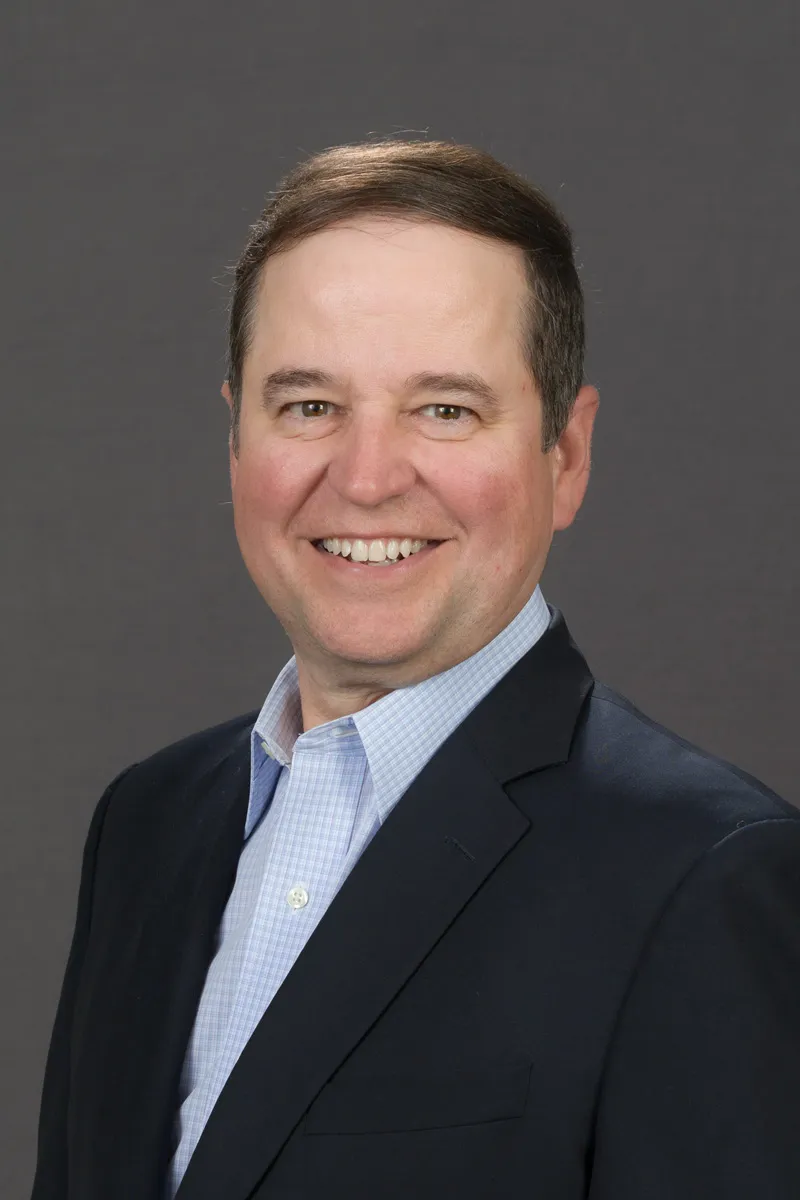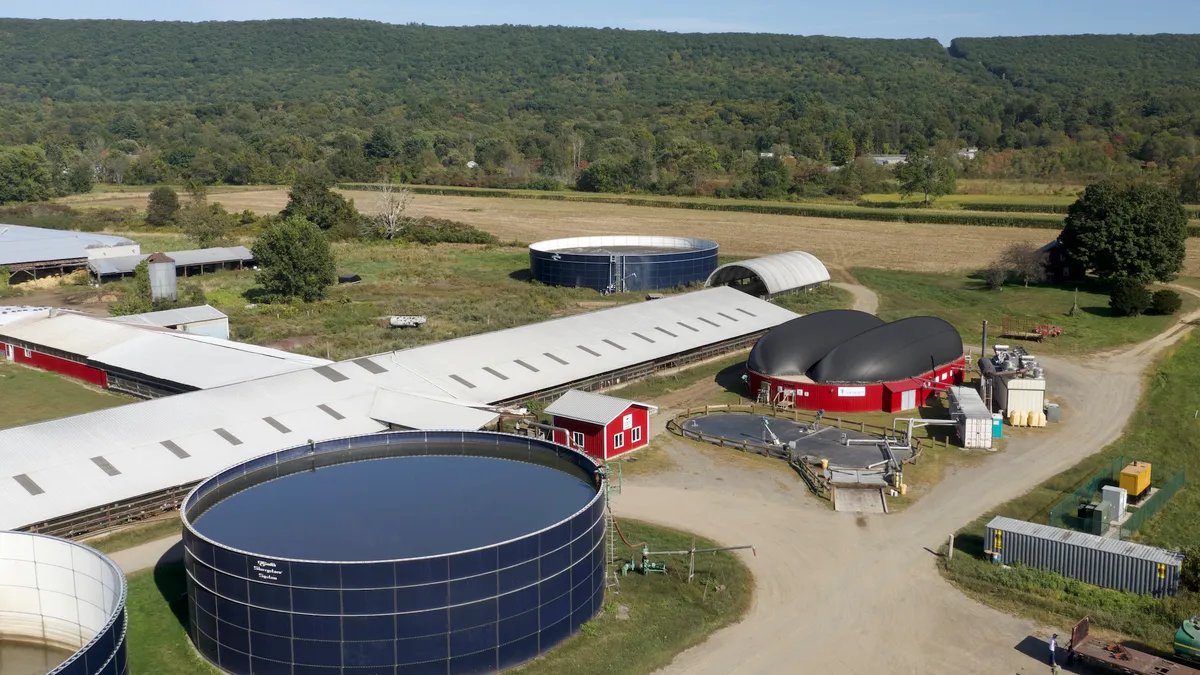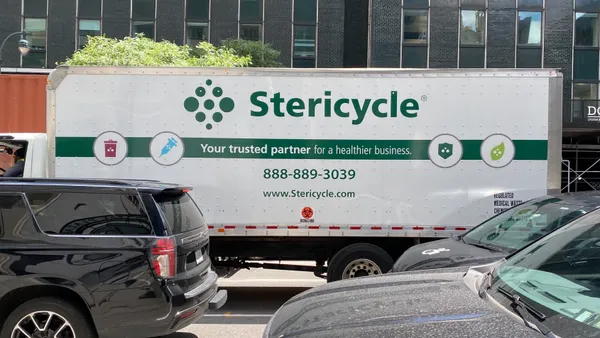Dive Brief:
- Vanguard Renewables hired its first president for its organics solutions business, a division that is expected to house a growing hauling fleet and logistics operation, the company announced July 10. Kent Bartley’s prior experience includes roles at Patriot Environmental Services, Clean Harbors and Envirosystems.
- In his new role, Bartley will oversee Vanguard’s expansion into controlling the feedstock for its growing portfolio of anaerobic digesters. Vanguard is already adding depackaging operations in the Midwest, and Bartley said he will oversee efforts to manage a growing diet of organics available to the company.
- “The more involvement that we have from the customer site into our digesters, the better off we'll be,” Bartley said. “We've decided to, with capital from BlackRock, kick off a logistics group which will mirror essentially all of our digesters that we're building across the whole network in the United States.”
Dive Insight:
The move toward logistics and depackaging is one occurring across the organics recycling industry. On Monday, Denali announced its depackaging partnership with Walmart will draw organics from more than 1,400 retail locations. It projects it will have a network of 40 such facilities by the end of the year. Divert is also in the midst of a major expansion of its integrated facilities nationwide, which combine depackaging with anaerobic digestion.

Vanguard’s growth has been powered by investment firm BlackRock, whose fund acquired the anaerobic digestion company two years ago for about $700 million. The deal has allowed Vanguard to speed up the rollout of dozens of new anaerobic digestion sites. Founder and Chief Strategy Officer John Hanselman said earlier this year that the company’s strategy is to build sites in a geographically connected manner, starting with locations in the Northeast and Midwest.
Vanguard’s logistics network will bolt onto that network, Bartley said. In an area with two nearby digesters, the company might expect to use a fleet of up to six trucks of various forms to handle pallets, liquid waste and other feedstocks. That fleet would then be scaled up across its network — the company has 32 sites under management now but wants to have 100 by the end of 2028.
Currently, Vanguard partners with several transportation subcontractors to get organic waste from its customers to its digesters. Bartley said he wants to keep those relationships for now, but the company believes it can achieve greater profitability by gradually internalizing those operations.
Customers, too, increasingly want a “one-stop shop” for a logistics and waste company that can take all of their materials, rather than a long list of vendors, Bartley said.
“We're already trying to turn every waste that we touch into a renewable or recyclable waste,” Bartley said. “We're taking some waste to service our customers that we wouldn't necessarily put into the digester, but we would take to a third party and manage it. That's a pretty big area for us to focus our resources,”
To process its growing menu of feedstock, Vanguard also plans to expand its depackaging capabilities. The company already has a depackaging facility in operation in Agawam, Massachusetts. It’s currently building two more in Wisconsin and Minnesota, which will complement new digesters that are also expected to begin operations in the coming months. Further facilities are expected to come online in the mid-Atlantic and elsewhere.
While Bartley said the company remains focused on organic growth, he also noted the potential for acquisitions in cases where companies have a similar cultural fit and footprint to Vanguard’s existing network. Targets could include both small haulers and infrastructure like depackaging facilities.
Eventually, Bartley said he expects Vanguard will be able to take more kinds of waste. He said it’s possible that the company could even begin competing for separated organic waste pickup from homes, especially as regulation requiring households to separate organics continues to proliferate.
As its digestion network grows, Bartley said Vanguard has also begun expanding its marketing budget and finding ways to meet more customers. He said the ultimate goal is to turn Vanguard into a full-service waste company with a household name.
“I could envision us, when our infrastructure's at its peak, that we could pretty much do anything that had to do with food waste, and be able to take all of it,” Bartley said. “At any level, at any size.”











